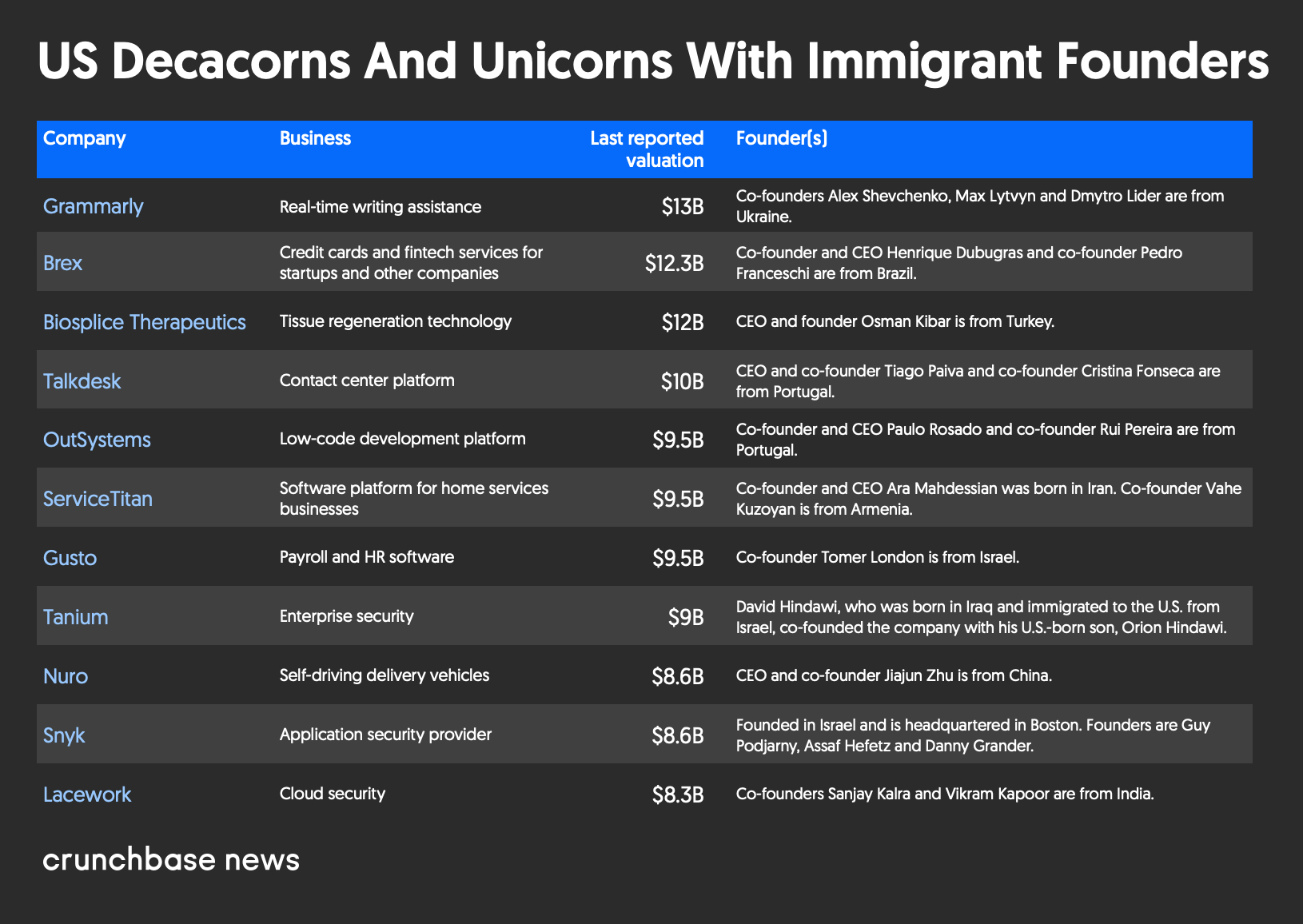Immigrants have founded and lead a disproportionately large number of American startups that go on to stupendously high valuations. But is that trend likely to continue?
Consider the circumstances. With the increasing globalization of venture capital investment and the rise of remote work, these days a headquarters location matters less. Nonetheless, the U.S. still leads the world in startup funding, and immigrants still flock here to attend universities, work in tech and start companies.
“There’s a natural selection that comes with high-skill immigration,” said Manan Mehta, founding partner at Unshackled Ventures, a seed and early-stage investor in U.S startups founded by immigrants. The type of person who chooses to leave their home country to pursue their ambitions in an entirely new one, he said, is essentially demonstrating an entrepreneurial mindset.
Search less. Close more.
Grow your revenue with all-in-one prospecting solutions powered by the leader in private-company data.
Based on the deal flow he’s seeing, Mehta predicts the role of immigrants in the U.S. startup pipeline will remain at its elevated level or even grow some. To see if the data support that contention, we looked at immigrant representation among founding teams of the biggest and fastest-growing unicorn startups.
It’s a sampling rather than a comprehensive data set. But overall, the findings are, to be honest, kind of fuzzy. As we reported earlier this week, the four most valuable U.S. unicorns—SpaceX, Stripe, Instacart and Databricks—are all founded and led by immigrants. Down the list, immigrant representation is considerably thinner.
That said, among venture-backed companies with valuations of $8 billion and up, immigrant founders still abound. In addition to the four mentioned above, others include:

While immigrant founding teams aren’t unique to the U.S., it is a particularly American phenomenon, Mehta observes. In most other countries, in particular unicorn-heavy China and India, the default assumption is that the founders of the country’s most valuable companies are native-born citizens.
European and U.K. startups have higher immigrant representation, but still lag behind the U.S, per Mehta. And Canada has a large immigrant startup scene, but not so many unicorns.
One feature of the U.S. immigrant-led startup scene that stands out is its diversity. Among the most valuable venture-backed unicorns, founders hail from Brazil, Ireland, Israel, India, Ukraine, China, Portugal, Turkey and other nations.
That geographic diversity is visible at the early stage as well, Mehta said, pointing to his own firm’s portfolio, at which founders of the top-valued companies hail from Ukraine, France, Israel and India.
Another intriguing aspect of immigrant-founded unicorns is that not all founders are necessarily working at company headquarters. Many U.S.-headquartered companies have a major presence in multiple countries, and in today’s remote work environment, it’s not always clear where founders themselves are based.
Illustration: Dom Guzman

Stay up to date with recent funding rounds, acquisitions, and more with the Crunchbase Daily.












67.1K Followers